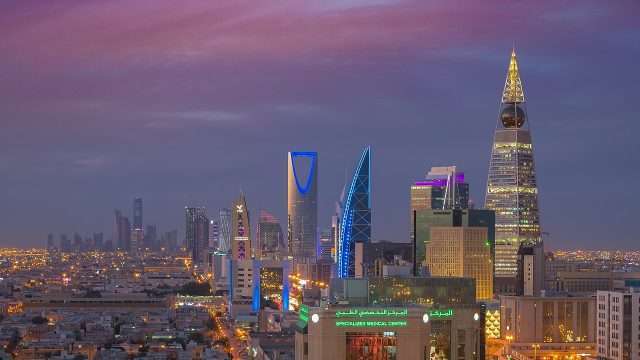Saudi Arabia interests in Kazakh economy and projects

Saudi Arabia wants to expand its influence and economic presence in Kazakhstan because the Central Asian republic has a considerable role in the Eurasian geopolitical chessboard as a transit corridor influenced by different trade and logistic projects. The Saudi interests in Kazakhstan underline Riyadh’s attempt of becoming more present in Central Asia and countering the activities of other Middle Eastern actors such as Iran, UAE, Turkey, and Qatar.
On October 19th, 2021, President of Kazakhstan Kassym-Jomart Tokayev held a meeting with the Chairman of the Advisory Council of the Kingdom of Saudi Arabia, Abd Allah bin Muhammad Al ash-Sheikh. The politicians discussed possible prospects for interaction between the two states.
The Kazakh head of state emphasised that Saudi Arabia was one of the first Arab countries to welcome the republic’s sovereignty. Tokayev also stressed that nowadays Riyadh is a reliable ally of Kazakhstan in the Muslim world. The President recalled that in a telephone conversation with Crown Prince Mohammed bin Salman Al Saud and during a personal meeting with the head of the Ministry of Investment Khalid A. Al Falih the parties discussed the possibility to sign significant agreements. In this regard, the interlocutors made an interesting exchange of views on the further development of trade and economic cooperation. Tokayev called on Saudi companies to invest and actively participate in several industrial projects in Kazakhstan.
Geopolitical scenario
The Central Asian republic of Kazakhstan is looking for foreign investors to support the national socioeconomic developments and domestic infrastructural projects and diversify its economy. Since its independence, Kazakhstan has become a significant player in the global economy and an attractive investment destination. For this purpose, Beijing’s Belt and Road Initiative has played a notable role because the Chinese strategy has transformed Kazakhstan into a transit corridor. China has invested a tremendous amount of money in Kazakhstan because this Central Asian republic represents a trade and logistic interconnector with Europe, Asia, and the Middle East.
Because of Kazakhstan’s role as a logistic transport corridor, Saudi Arabia is interested in becoming a prominent actor in the Central Asian republic through foreign direct investments and socio-cultural interaction based on Islam.
On September 28th, 2021, the Minister of Investments of Saudi Arabia, Khalid A. Al-Falih, met Kazakh President Kassym-Jomart Tokayev and Prime Minister Askar Mamin during an official visit to the country. During the meeting, the parties expressed their interests in enhancing economic cooperation and commercial trade and highlighted that in the first seven months of 2021, bilateral trade grew 36.5%. Khalid A. Al-Falih stressed Riyadh’s great engagement in Kazakhstan since Saudi Arabia has approximately invested 100 million dollars in the country. According to him, Saudi Arabia’s State Development Program 2030 and the Development Program of Kazakhstan-2050 aim at achieving the same goals: diversifying the economy and reducing the dependence on the exports of natural resources.
In economic diversification, Saudi and Kazakh Governments can cooperate in the field of nuclear and renewable energy. Indeed, on September 2nd, 2021, the Ambassador of Kazakhstan to Saudi Arabia Berik Aryn met with the Chairman of the King Abdullah Scientific City for Nuclear and Renewable Energy (K.A.CARE) Khalid Al-Sultan to discuss ways to expand bilateral cooperation between K.A.CARE and Kazakhstani companies, research institutes and centres in the field of nuclear energy and renewable energy sources.
Why does it matter?
Central Asia has proven to be an interesting region of the Eurasian geopolitical chessboard where international and regional actors confront each other and extend their influence through political, economic, and cultural strategies. Like other Gulf countries, Saudi Arabia aims to become more involved in the regional dynamics exploiting foreign direct investments (FDIs) in regional infrastructural projects, boosting trade exchange with local actors, and using the card of Islam to gain popularity among the local population. In this context, Saudi Arabia must confront the Islamic Republic of Iran, which is directly bonded with Central Asia due to its geographic position and past historical background, especially with Tajikistan, and also backed by Qatar (Iran e Tagikistan rafforzano la cooperazione nei settori energia e sicurezza; Cooperation among Qatar and Uzbekistan), the United Arab Emirates which has demonstrated to be highly active in promoting commercial cooperation and cultural diplomacy in Central Asia (Geopolitics of UAE investments in Central Asia), and Turkey since Ankara has vigorously promoted Pan-Turkism and the idea of transforming the Cooperation Council of Turkic-speaking States into an organisation able to confront Kremlin’s Eurasian Economic Union and Collective Security Treaty Organisation, Beijing’s Belt and Road Initiative, and Brussels and Washington socioeconomic strategies and soft power (Turkey and pan-Turkism in Central Asia: challenges for Russia and China).
